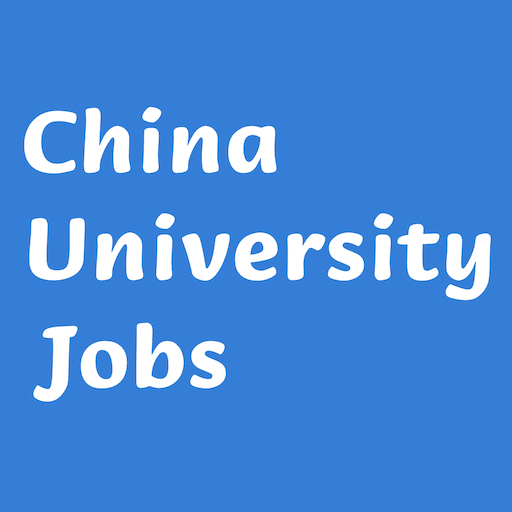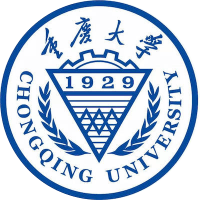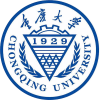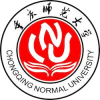Job Overview
More Information
- Address Chongqing University, Chongqing, China
- Qualification PhD
- Discipline Science & Engineering
- Last Refreshed Mar 2, 2022
Recruitment Information
1. Brief introduction
Chongqing University (CQU) is one of the top 1% Chinese universities within the framework of State 211 Project, 985 Project, and “Double First-class (A)” University. The educational and research activities at CQU cover eleven disciplines including Science, Engineering, Economics, Management, Law, Literature, History, Philosophy, Medicine, Education, and Arts.
The College of Materials Science and Engineering at CQU was originated from the Department of Mining and Metallurgy, which was established in 1935 as one of the first majors in the engineering faculty of the university. The disciplines of Materials Science and Engineering and Metallurgical Engineering in the College are selected as a national first-class undergraduate major under the Ministry of Education (MOE), and the undergraduate majors of both disciplines are recognized with the “Professional Certification of Chinese Engineering Education” status in 2019. There are six departments in the College, including Materials Science, Metallurgical Engineering, Materials Processing, Materials Forming and Control, Building Materials, and Decorative Materials and Engineering. The discipline of Materials Science and Engineering at CQU has remarkable internal and international reputations, as a result of its distinctive discipline features, advanced teaching and research platforms, and numerous achievements from basic scientific research to industrial innovation. It was approved by the State Council as one of the first group of academic entities qualified to grant MSc degrees in the major of Metallic Materials and Heat Treatment in 1981, and was subsequently awarded a license to grant doctoral degrees in 1993. It was approved to be the doctoral degree-granting unit in 2000. In 2007 the sub-discipline of Material Science was awarded the status of a national key discipline. In 2021, its ESI subject ranking was within the top 0.723‰. The discipline is renowned worldwide in the area of light alloys and advanced characterization techniques, and also as one of the three prestigious national magnesium alloy R&D bases. In order to make China strong in materials, the discipline takes its advantage over materials development and characterization, utilizing the research platforms, such as National Engineering Research Center for Magnesium Alloys and the International Joint Laboratory for Light Alloys (MOE), to promote the progress of materials industry and significantly improve its international competitiveness.
The discipline of Metallurgical Engineering was one of the first majors in metallurgy fields of China. It started to enroll graduates in 1961, and was subsequently awarded a license to grant master and doctoral degrees in 1981 and 1990, respectively. It was awarded the key discipline of Sichuan Province (1996) and Chongqing (1999), and in 2000, it was approved to be the doctoral degree-granting unit. In 2007, it was awarded the status of a national key (cultivation) discipline. The undergraduate major of Metallurgical Engineering is recognized with the “Professional Certification of Chinese Engineering Education” status, and was selected as a national first-class undergraduate major under the Ministry of Education in 2019. The discipline remains the top 11 in the world in the ranking of world-class disciplines by Global Ranking of Academic Subjects in 2021. As a result of its impressive achievements, the discipline of Metallurgical Engineering at Chongqing University has extensive influence at home and abroad, and become a high-level research and development center for talents training in Metallurgical Engineering, integrating basic theoretical research, cutting-edge technology development and achievement incubation in relevant fields.
The College has focused on metallurgy, forming, processing of metals, inorganic materials and new energy materials, which provides important support for the talent training in metallurgy and materials areas.
2. Academic staff
At present the College of Materials Science and Engineering consists of 192 faculty members, including 72 professors and 66 associate professors. A high-level international teaching staff team has been established, with one academician of the Chinese Academy of Engineering.
The College is keen to recruit more academic staff, thereby providing a solid basis for the development of a world-class discipline. Competitive remuneration and benefits will be provided for the successful candidates.
3. Academic fields
(1) Discipline: Materials Science and Engineering; Metallurgical Engineering
(2) Research area:
Materials Science and Engineering: light alloys, materials characterization at multiple dimensions and scales, advanced processing molding/forming technology, energy and environmental functional materials, green building materials and other related disciplines.
Metallurgical Engineering: Extraction metallurgy and comprehensive utilization of polymetallic symbiotic ore; Metallurgical theory and new technology; Metallurgical Environmental Protection and secondary resource utilization; Metallurgical process engineering and intelligent manufacturing optimization and other related disciplines Welcome talents from Materials Science and Engineering, Metallurgical Engineering and other related disciplines to join us! Young talents with innovative spirit and ability are especially welcome!
4. Seven categories of academic staff recruited:
(1) Hongshen Topnotch Scholars
(2) Hongshen Distinguished Scholars
(3) Hongshen Outstanding Scholars
(4) Hongshen Young Scholars
(5) Professors
(6) Associate Professors
(7) Hongshen Junior Faculty members
More information on requirements and benefits can be found at http://rsc.cqu.edu.cn/info/1039/2965.htm
5. Research platform
College of Materials Science and Engineering has set up a number of different national platforms to support staff development, including the National Engineering Research Center for Magnesium Alloys, National Experimental Teaching Demonstration Center of Engineering Materials, Shenyang National Laboratory for Materials Science (Light Metals), International Joint Laboratory for Light Alloys (MOE), Institute of Comprehensive Utilization of Vanadium Titanomagnetite (MOE), Key Laboratory of Vanadium Titanium Metallurgy and New Materials of Chongqing, and a first-class Electron Microscope Center with an international reputation.
The National Engineering Research Center for Magnesium Alloys was approved as a national key base for international cooperation at the end of 2007 and a national international joint research center in 2008. The Journal of Magnesium Alloys hosted by this Center has an impact factor of 10.088 in 2021 which is the highest among the journals in the field of metallurgy. The Center has the largest number of R&D staff, the biggest base size, and the highest number of graduate students in the field of magnesium research in the world. There are platforms for first-class manufacturing, testing, and analysis of magnesium alloys. A series of new materials and key techniques have been developed and a number of groundbreaking achievements have been obtained with independent intellectual property rights, which has promoted the application of magnesium alloys in automobile, military industry, motorcycle, manual tools and 3C products, and accelerated the development of China’s magnesium industry.
The Electron Microscope Center of Chongqing University was initiated by several electron microscopy experts recruited by the College, based on a total investment of 150 million CYN. This Center is equipped19 suites of electron microscopies and a variety of advanced sample preparation facilities. Two novel electron microscopies representing global firsts have been developed: namely, an aberration-corrected spin-polarized low-energy electron microscope with the highest spatial and magnetization resolution to date, and a transmission electron microscope capable of three-dimensional characterization of dislocations (crystal line-defects) and grain structures at the nanoscale. The Center brings together the top scientists in the world to jointly develop new large-scale scientific instruments and techniques on the basis of “global development and global sharing”, and serves as an international open platform to solve challenging scientific problems in the field of materials science.
Contact:
Interested candidates may contact us for more information.
Email: Click to show encoded email
Tel:0086-23-65127306
* Please mention you saw the advertised position on ChinaUniversityJobs.com. To receive job updates, please follow us on LinkedIn, Twitter and/or WeChat.






